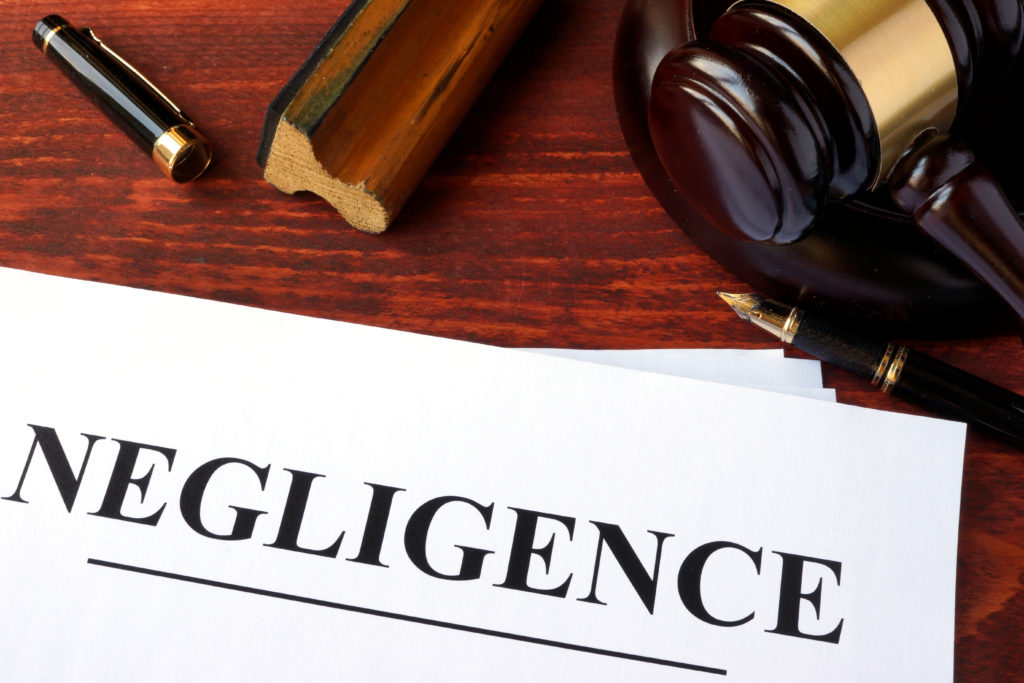Third-Party Liability Claims: When Can You Sue Beyond Workers Compensation in Florida?
Workplace injuries can be a harrowing experience, often leaving victims with both physical and emotional scars, as well as financial implications. Beyond the initial shock and recovery, employees in Florida must grapple with the complex intersection of workers’ compensation laws and potential liability claims.
But what happens when the injury is a result of a third party’s negligence? In this post, our team of expert workers compensation lawyers in Gainesville, FL will walk you through your rights under these circumstances and answer important questions about the filing process.
Deciphering Third-Party Involvement in Workplace Accidents
Here in Florida, when you’ve been injured on the job due to a third party’s negligence or wrongful actions, the web of legal options becomes both complex and potentially more rewarding. This is because in situations where your workplace injury extends beyond the direct involvement of your employer or colleagues and can be attributed to an external party, you have the right to pursue what is known as a third-party claim.
This typically encompasses situations in which the responsibility for your injury may lie with a product manufacturer, contractor, subcontractor, property owner, or any other entity whose negligence played a part in the incident. These claims can arise from a wide range of scenarios, such as:
- A delivery person slips and falls due to a poorly maintained stairwell at the workplace
- A defective piece of equipment malfunctions, causing injury to an employee
- An outside contractor’s actions lead to unsafe conditions and, ultimately, an accident on the work premises
What is Dual Capacity?
Understanding third-party negligence is crucial; it can open avenues for additional compensation that wouldn’t be available under workers’ compensation alone. This can include pain and suffering, loss of enjoyment of life, and the potential for punitive damages, which are not part of workers’ comp benefits.
This is because of “dual capacity,” a legal doctrine that grants you the right to file a claim against a third party while continuing to receive workers’ compensation benefits from your employer. This pivotal principle acknowledges the multifaceted nature of workplace injuries and recognizes that accountability may extend beyond the confines of the employer-employee relationship.
How Long Do You Have to Sue Your Employer in Florida?
The statute of limitations in Florida for a typical negligence claim against a third party is now two years. However, every case is different, and there are exceptions and nuances that could apply to your case. Given that workers’ compensation claims are typically complex and time-sensitive (with or without third-party involvement), it’s best to seek legal advice as soon as possible. The sooner you consult with experienced worker’s compensation lawyers in Gainesville, FL, the better your chances are of filing a timely and successful claim. If you’ve been injured on the job, contact us today for a free consultation.
How to File a Third-Party Liability Claim in Florida
Filing a third-party liability claim is a multi-faceted process that encompasses legal protocols and personal documentation. Here’s a step-by-step guide to help you understand how to proceed:
- Notify the Right Parties: Once you’ve been injured, notify your employer immediately. Simultaneously, if your injury involves third-party negligence, inform the third party and any relevant insurers. Quick notification is essential to preserving evidence and ensures that your claim moves forward without unnecessary delays.
- Seek Medical Attention: Your health is paramount. Seek immediate medical attention for your injuries. Not only is this crucial for your well-being, but it also provides legal documentation necessary for your claim. Follow your doctor’s orders explicitly to avoid any assertion from the third party that your actions worsened the injury.
- Secure Evidence: If possible, collect evidence from the scene of the incident or as soon after as is safely feasible. Take photos, gather witness statements, and get the information of any third parties involved. Strong evidence is key to strengthening your claim.
- Retain Legal Counsel: An experienced attorney can guide you through the nuances of Florida law, build a strong case, and represent your best interests. They can also ensure that your workers’ compensation benefits are integrated into the third-party claim seamlessly.
- Negotiation or Litigation: With your legal representation, you will engage in negotiations with the responsible party to reach a settlement. If an agreement cannot be met, your claim will proceed to trial. Your attorney should be adept at out-of-court negotiations and skilled in the courtroom, like our trial-tested attorneys at Avera & Smith.
- Record Keeping: Throughout the process, keep meticulous records of all correspondence, bills, and other documents related to your injury and claim. These records are valuable for potential settlement offers and can serve as a factual backbone in the case of litigation.
Understanding and exercising your legal rights are empowering acts in times of personal crisis. By educating yourself on the nuances of Florida’s dual capacity doctrine, you not only lay the foundation for just compensation but also ensure that all involved parties are held accountable.
There’s a reason our firm is renowned as being the best worker’s compensation lawyers in Gainesville, FL; our approach throughout this journey is one of unwavering support and advocacy. We understand the complexities involved in third-party liability claims and are committed to guiding you with empathy, expertise, and a steadfast dedication to securing the best outcome available, whether through settlement negotiations or a trial. Contact Avera & Smith today and work with the legal champion that your injury deserves.
